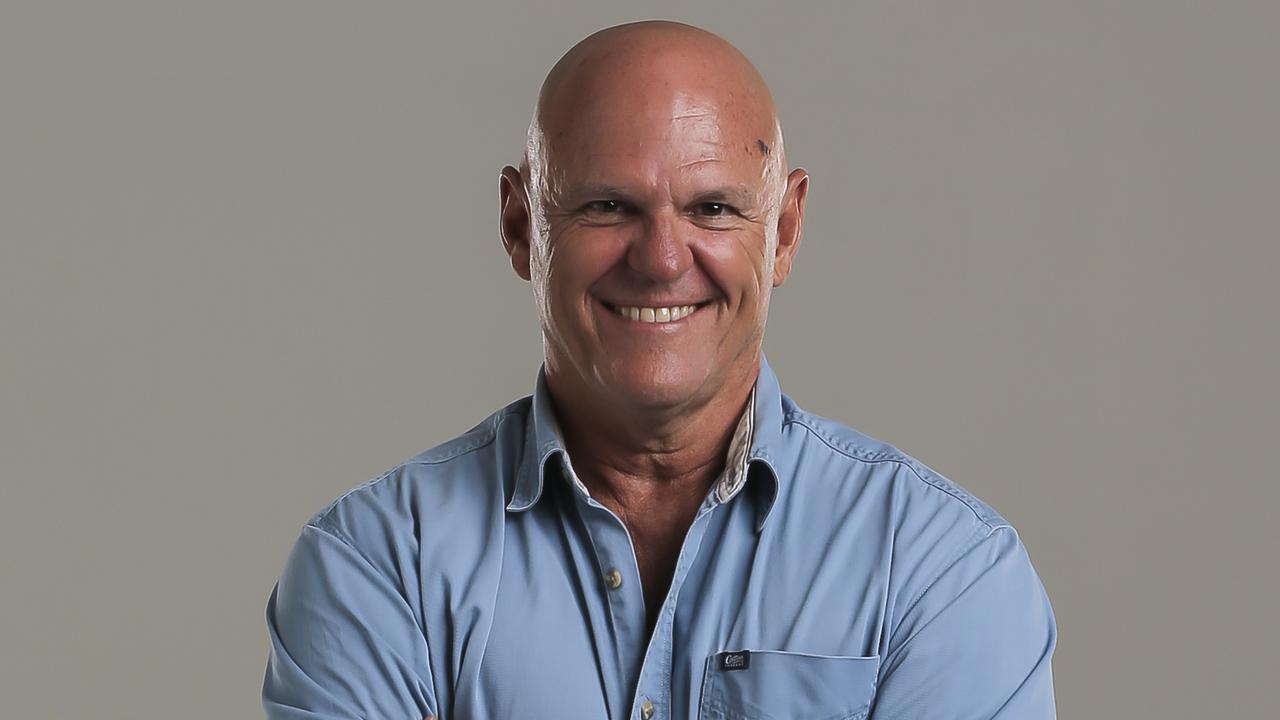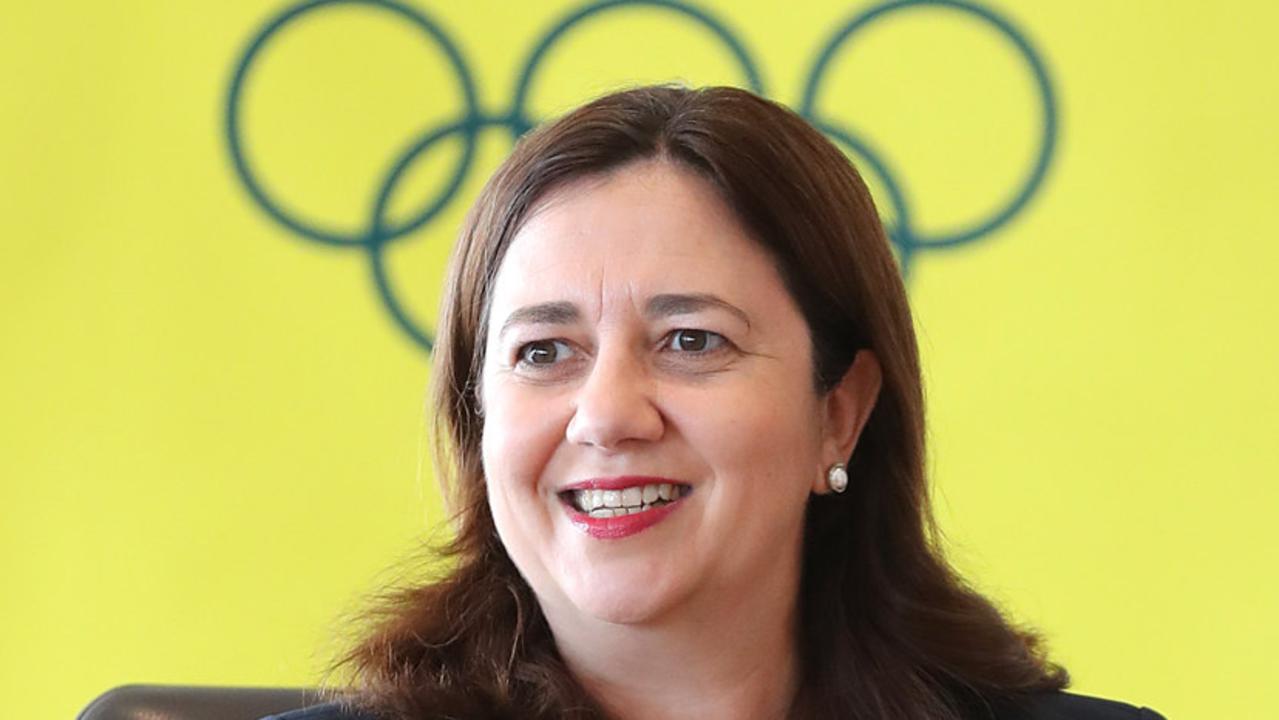Opinion: GST the beginning of falling-out between Malcolm Turnbull and Scott Morrison
THE Treasurer seems to have been left out of the tight circle plotting the most vital dates in the national capital because he’s not trusted and is too much about himself.

WE DIDN’T see a lot of Malcolm Turnbull over Christmas and January, apart from the pro forma holiday events and a quick head above the parapet to dump Jamie Briggs from the ministry.
First we thought he was going to take a break but he changed his mind and worked away in his Sydney offices.
Those who met with and talked to the Prime Minister over these weeks said he was putting together a mud map for his political year – those who know him well spotted what was going on quickly.
PERFORMANCE: Backbenchers defend Treasurer
BUDGET: PM denies rift with Treasurer
Turnbull was constructing a deal. It was not, however, like the multi-million-dollar business deals he’s brokered for himself or others over the decades making him a self-made millionaire and Australia’s richest-ever PM.
This was a deal with different working parts – a Parliament that can be a master of its own destiny, a Budget requiring a policy and political juggling act, a Senate that had to be both massaged and reformed and a Liberal Party in which some wounds were still raw and sore.
“All options are being considered,” warned one Cabinet minister in late January. “I spent three hours with Malcolm last week and he is war-gaming everything and has lists of pros and cons on each possibility.”
By the time Parliament returned on February 2, expectations were already running high – too high to be sustained. The LNP’s vote was between six and eight points ahead of Labor, pointing to a solid victory and a probable handy increase in the number of Coalition seats.
A Labor Party roundtable of senior campaign officials in Melbourne the week before had failed to identify any seat they could be confident of taking off the Government – in any state.
A Cabinet meeting in Melbourne at the same time looked at the broad-brush plan for tax reform, based on a tax mix switch from relatively high personal and corporate taxes to the GST through raising the rate and extending its reach.
This was based on a briefing by Treasury head John Fraser but, senior government insiders said, outside advice Turnbull had commissioned contradicted it, saying the growth impact was between non-existent to minimal and the compensation bill too large.
This was the beginning of the falling-out between Turnbull and Treasurer Scott Morrison and the even more pronounced bureaucratic fracture between the powerhouse departments of Prime Minister and Cabinet and Treasury.
Turnbull felt Morrison was not riding his department hard enough to get advice quickly and he was exasperated after the Treasurer’s National Press Club appearance in February, which the PM told colleagues “had nothing in it”.
The Prime Minister retaliated by emasculating Treasury – taking the tax reform job out of the department’s hands and giving it to his hand-picked bureaucratic chief (and former Treasury head) Martin Parkinson.

Turnbull has known and worked with Morrison since the 1990s and the pair formed a close relationship when the now Prime Minister was battling a preselection stoush that played out on the national stage.
Over the last two months the relationship had cooled, to say the least. Turnbull pointedly did not bring Morrison into the tight circle plotting what were fast becoming the most vital dates in the national capital – when the Budget would be delivered and when the election would be held.
People might think the Treasurer wasn’t needed for election timing but surely he should have a say in when he’d stand up in Parliament and present the annual balance sheet.
The problem, according to insiders, is that Morrison is not trusted and senior government figures say he’s too much about himself and not enough about the collective good.

That Morrison was backgrounding journalists after the new May 3 Budget date was announced that it was his idea in the first place – which it seems was certainly not the case – is being used as an example of this “it’s all about me” attitude. Morrison was one of the last to know the final decision had been taken – but the plan to bring the Budget forward a week and then roll on to a double-dissolution election on July 2 was hatched in February.
The last sitting day of the first three Parliamentary weeks was a busy one for Turnbull. The night before there had been a gala dinner for the 20th anniversary of the Howard government’s election and the tensions with Abbott were running high. Morrison had a shocking day stuffing up a negative gearing tax concession hit on Labor and looked like a dill in Parliament. However, a strategy meeting with two of the Prime Minister’s most valued political advisers was of even greater moment.
Along with his principal private secretary and chief political adviser Sally Cray and pollster Mark Textor, Turnbull considered the options following the receipt of bureaucratic advice from Solicitor-General Justin Gleeson. In that advice sat a very attractive path to follow – use section 5 of the Australian Constitution to recall Parliament after it rose before Easter and force the Senate to consider the re-establishment of the Australian Building and Construction Commission.
This would play into bringing the Budget forward a week, allowing Parliament to give a final say on this industrial legislation, give Bill Shorten the opportunity to respond to the Budget and free up the following week to prorogue Parliament for a double-dissolution poll on the first available date after the end of June.
This lined up Turnbull’s ducks – even if the relationship with Morrison took a powerful hit – and he is now wanting to seal the deal.
The 12 million shareholders, the voters of Australia, will have the final say on that.
Dennis Atkins is The Courier-Mail’s national affairs editor


